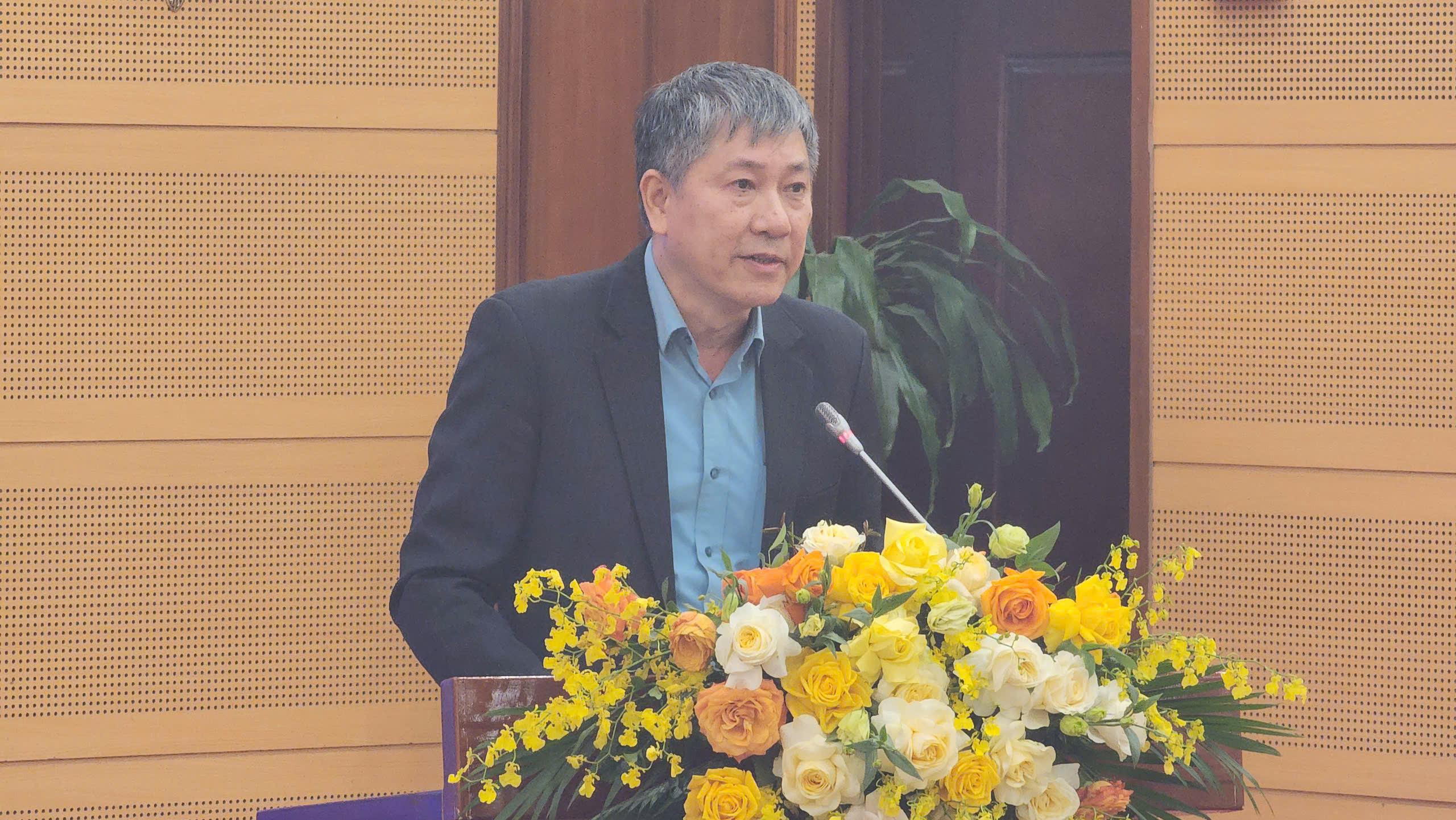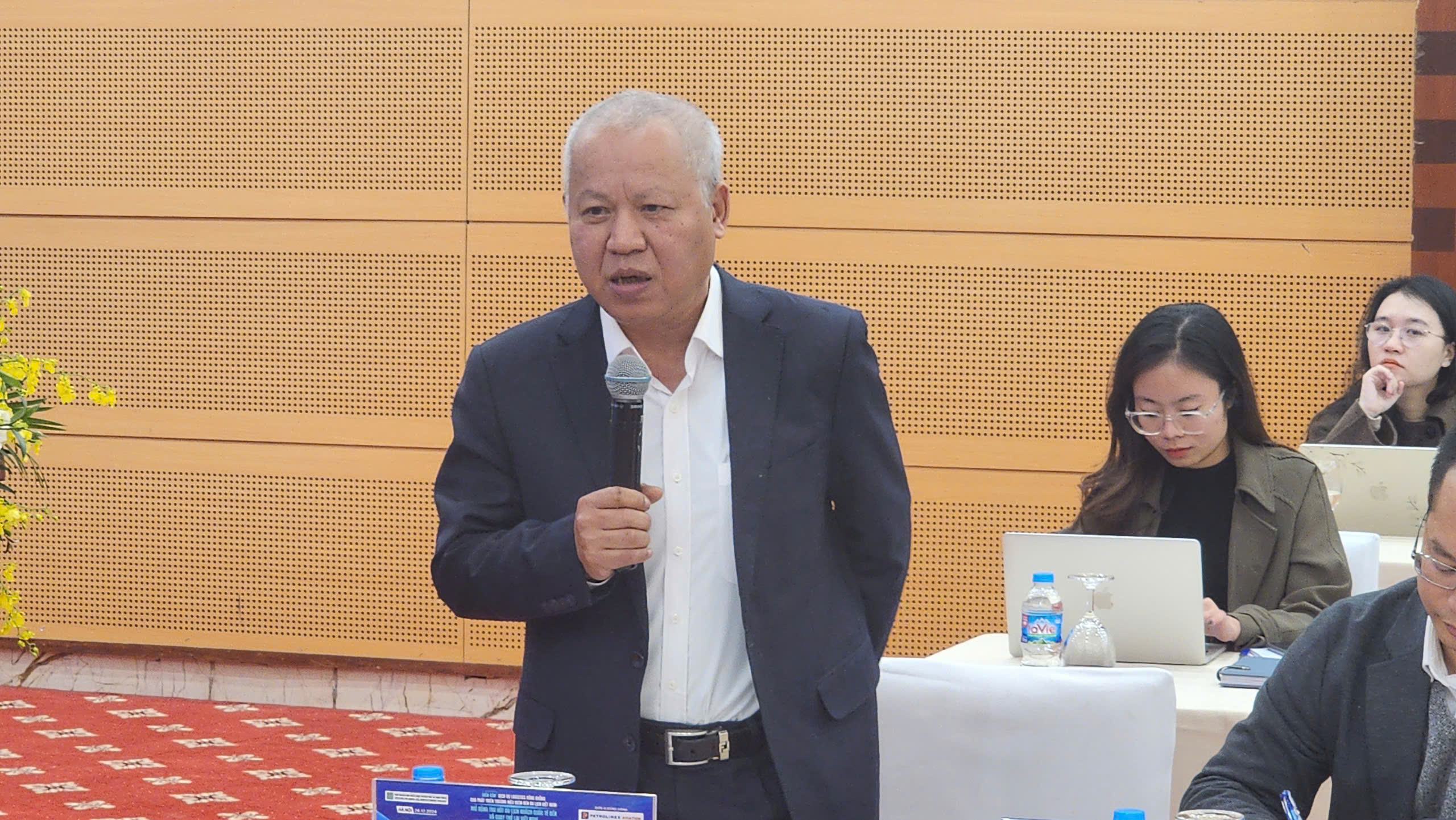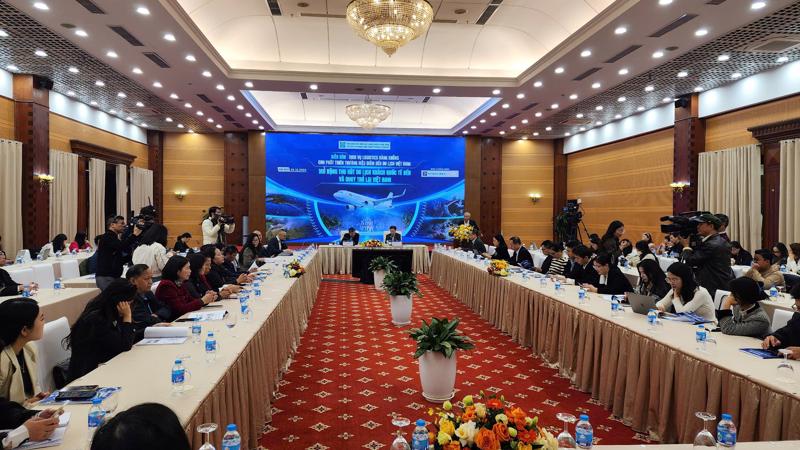Speaking at a forum entitled “Aviation logistics for developing Vietnam’s tourism brand,” held on December 26, Mr. Vu Quoc Tri, General secretary of the Vietnam Tourism Association, quoted the master plan for development of tourism for 2021-2030 period, with a vision to 2050, which has been announced in October by the Ministry of Culture, Sports, and Tourism, as stating that Vietnam aims to make tourism a leading economic sector by 2030, ranking among the top 30 countries with the highest tourism competitiveness in the world.
Ambitious target
According to Mr Tri, tourism has been established as a key economic sector, since Vietnam set a target to welcome 25-28 million international visitors and contribute 8-9 per cent of GDP in 2025, with the ultimate objective of contributing over 13 per cent of GDP.
According to the General Statistics Office of Vietnam, international tourist arrivals in November reached 1.7 million, the highest monthly figure so far this year, marking a 20.5 per cent increase compared to October and a 38.8 per cent rise from the same period in 2023. In total, over the first 11 months of 2024, international arrivals surpassed 15.8 million, a 41 per cent increase compared to the same period last year.

Dr. Le Tuan Anh, Head of the Faculty of Tourism Management and International Languages at Hanoi University of Culture, noted that tourists from Asia accounted for nearly 80 per cent of the total international arrivals to Vietnam, with major markets in Northeast Asia driving growth. Additionally, the number of European tourists has shown promising growth, with these markets benefiting from Vietnam’s visa exemption policies allowing stays of up to 45 days.
“With the impact of relaxed visa policies and dynamic promotional activities, international arrivals to Vietnam have surged in the latter months of the year, and the tourism sector is expected to achieve its target of welcoming 17-18 million international visitors in 2024,” Dr. Tuấn Anh added.
At the forum, Dr. Bui Thanh Thuy, Head of the Tourism faculty at Hanoi University of Culture, highlighted that while Vietnam possesses significant tourism potential, the industry must focus on creating distinctive products and effectively promoting the national brand. She also emphasized the importance of steering tourism toward sustainable and green growth.
"One distinctive feature of Vietnam's destinations is that they still preserve their untouched and pristine characteristics, with minimal changes over time. These are the factors that attract tourists from developed countries who wish to revisit the past and explore historical aspects in Vietnam," Dr. Thuy pointed out.
Challenges to create breakthroughs for Vietnam's tourism industry
However, she cautioned against unchecked infrastructure expansion driven solely by profit motives, which could result in resource depletion, advocating instead for learning from the European Union’s “responsible tourism” model, where every individual and organization recognizes their responsibility for invironemental protection in tourism activities.
Regarding air logistics, Dr. Thuy noted that high airfares remain a challenge requiring collaboration to address. She proposed stronger partnerships among stakeholders and effective implementation of existing plans and policies, alongside prioritizing improvements in transportation infrastructure, particularly road and air travel.
For his part, former Deputy Director of the Civil Aviation Authority of Vietnam, Mr. Vo Huy Cuong, highlighted that air logistics is a crucial factor in stimulating tourism and connecting Vietnam to the world. He also noted the impressive recovery of Vietnam’s international air transport market, which had achieved significant growth compared to the same period last year.

By December 15, international passenger traffic had exceeded 41 million, with numbers expected to rise further in the last two weeks of the year. International passenger traffic on routes departing from Vietnam had grown by 27 per cent compared to 2023.
However, the aviation sector faces challenges in meeting travel demand due to 40 grounded aircraft awaiting engine replacements. While domestic airlines have attempted to expand their fleets, delays in delivery timelines mean that orders placed with major manufacturers like Boeing and Airbus today will not be fulfilled until 2032.
As a result, experts agreed that fostering close collaboration between domestic and international airlines, travel agencies, and regulatory bodies is essential to develop attractive tourism packages, optimize costs, and enhance visitor experiences. Additionally, the development of high-speed rail, expressways, and other transport options was seen as critical to diversifying travel choices for tourists.
Regarding tourism branding, experts recommended focusing not just on promoting resources or services but on crafting a unique “story” for the national brand that resonates emotionally with visitors. “Creating a distinctive impression is crucial,” said Mr. Nguyen Ngoc Bich, who emphasized that unique cultural and experiential values that only Vietnam can offer should be central to the country’s tourism messaging.
Experts also called for strong messaging on Vietnam as a safe and high-quality destination, highlighting its political stability, public safety, and excellent services.
Proposals for advancing Vietnam’s tourism included enhancing infrastructure, promoting sustainability, fostering collaboration with foreign travel agencies, airlines and media organizations, improving education and workforce training in tourism and logistics, creating a map of green tourist attractions for visitors and deepening international partnerships to attract investment, share expertise, and expand market reach.
Green and sustainable tourism development was highlighted as a key priority, focusing on environmental protection, cultural preservation, and promoting responsible travel experiences. To achieve these goals, authorities must finalize and implement comprehensive policies and mechanisms to create favorable conditions for businesses to thrive and improve destination management capabilities.
Moving from commitments to actions, experts stressed that detailed planning, clear accountability, and synchronized execution are essential for success. The forum concluded with the Vietnam Tourism Association reaffirming its commitment to action, collaboration, and contributing to the sustainable growth of the tourism industry. With collective effort, Vietnam is poised to become a leading destination in the region and globally.









 Google translate
Google translate